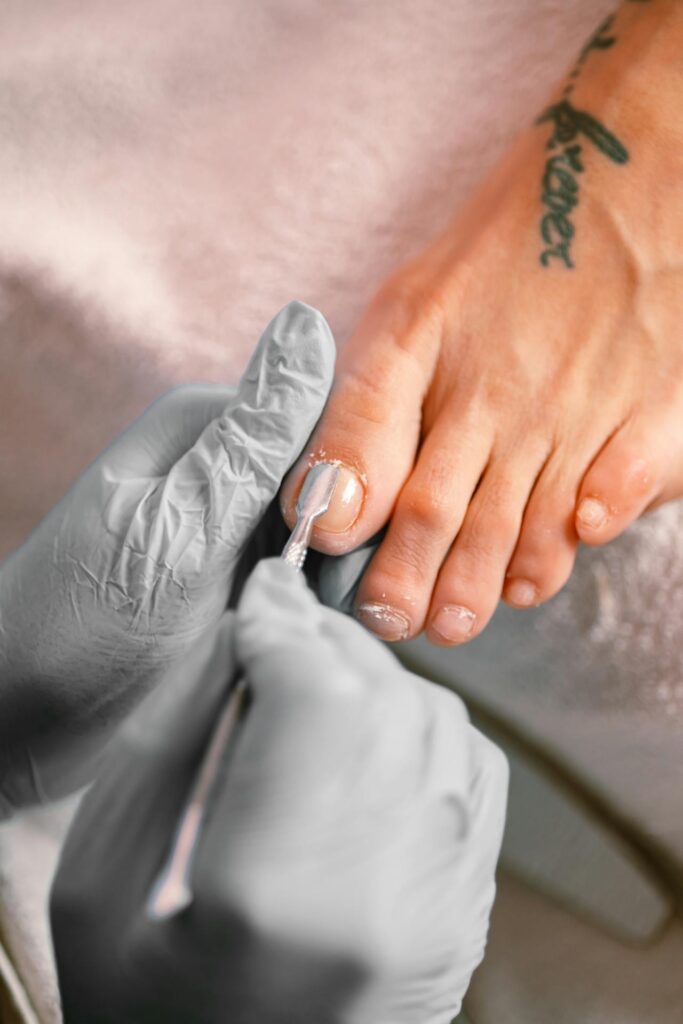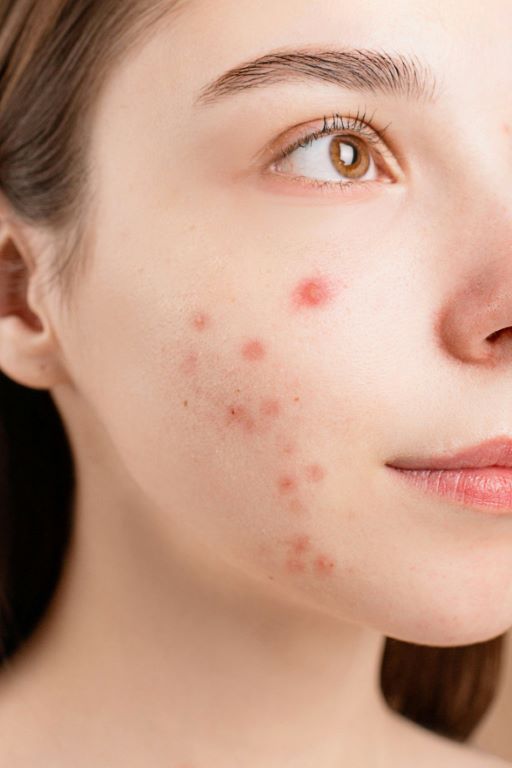Nail fungus, also known as onychomycosis, is a common condition that affects many people. It occurs when a fungus infects the nails, causing them to become discolored, thickened, and brittle. While there are several over-the-counter and prescription treatments available, many people prefer to try natural remedies first. In this article, we will explore some effective ways to fight nail fungus using natural remedies.
One of the most popular natural remedies for treating nail fungus is tea tree oil. This essential oil has antifungal properties that can help kill the fungus and prevent it from spreading. To use tea tree oil, simply apply a few drops to the affected nails and massage it in gently. It is important to do this consistently, at least twice a day, for several weeks to see results.
Another natural remedy that has been found to be effective against nail fungus is apple cider vinegar. This common household ingredient has antifungal properties that can help kill the fungus and restore the health of the nails. To use apple cider vinegar, mix equal parts of vinegar and water in a basin and soak your affected nails in the solution for 15-20 minutes. Repeat this process daily until the infection clears up.
Garlic is another natural remedy that can be used to treat nail fungus. Garlic contains a compound called allicin, which has antifungal properties. To use garlic, crush a few cloves and apply the paste directly to the affected nails. Cover the nails with a bandage and leave it on for a few hours or overnight. Repeat this process daily until the infection clears up.
Oregano oil is another natural remedy that has been found to be effective against nail fungus. This essential oil has antifungal properties that can help kill the fungus and promote healthy nail growth. To use oregano oil, mix a few drops with a carrier oil, such as olive oil or coconut oil, and apply it to the affected nails. Massage it in gently and leave it on for a few hours or overnight. Repeat this process daily until the infection clears up.
In addition to these natural remedies, there are several other steps you can take to prevent and treat nail fungus. It is important to keep your nails clean and dry, as fungus thrives in warm and moist environments. Avoid wearing tight-fitting shoes and opt for breathable materials, such as cotton socks. Trim your nails regularly and avoid sharing nail clippers or files with others to prevent the spread of infection.
While natural remedies can be effective in treating nail fungus, it is important to note that they may not work for everyone. If your symptoms persist or worsen, it is recommended to consult a healthcare professional for further evaluation and treatment options. They may prescribe antifungal medications or recommend other treatments, such as laser therapy or surgical removal of the affected nails.
In conclusion, natural remedies can be effective in fighting nail fungus. Tea tree oil, apple cider vinegar, garlic, and oregano oil are all natural remedies that have been found to be effective against nail fungus. However, it is important to take preventive measures and consult a healthcare professional if symptoms persist or worsen. By following these tips, you can effectively treat and prevent nail fungus, restoring the health and appearance of your nails.
Topical treatments for combating nail fungus
Nail fungus, also known as onychomycosis, is a common condition that affects millions of people worldwide. It can be unsightly and uncomfortable, causing thickened, discolored nails that may become brittle and crumble. If left untreated, nail fungus can spread to other nails and even cause pain. Fortunately, there are several effective topical treatments available to combat this stubborn infection.
One of the most commonly used topical treatments for nail fungus is antifungal nail polish. This type of polish contains ingredients such as ciclopirox or amorolfine, which have been proven to effectively kill the fungus. Applying antifungal nail polish is simple and convenient, as it can be done at home. However, it is important to note that this treatment requires consistency and patience, as it may take several months to see noticeable results.
Another effective topical treatment for nail fungus is antifungal creams or ointments. These products are typically applied directly to the affected nail and surrounding skin. They work by penetrating the nail and killing the fungus. Antifungal creams and ointments are often recommended for mild to moderate cases of nail fungus. It is important to follow the instructions provided by the manufacturer and continue using the product for the recommended duration, even if the symptoms improve.
In addition to antifungal nail polish and creams, there are also medicated nail lacquers available for treating nail fungus. These lacquers contain antifungal agents that are applied to the affected nails once or twice a week. The lacquer forms a protective barrier over the nail, allowing the medication to penetrate and kill the fungus. Like other topical treatments, medicated nail lacquers require consistency and patience to achieve desired results.
For those who prefer natural remedies, there are also several topical treatments that can be used to combat nail fungus. Tea tree oil, for example, has antifungal properties and can be applied directly to the affected nails. Other natural remedies include vinegar, garlic, and coconut oil. While these treatments may not be as potent as prescription medications, they can still be effective for mild cases of nail fungus.
It is important to note that topical treatments alone may not be sufficient to completely eradicate nail fungus. In some cases, oral antifungal medications may be necessary to effectively treat the infection. These medications are typically prescribed by a healthcare professional and work by attacking the fungus from within the body. Oral antifungal medications are generally reserved for severe or persistent cases of nail fungus.
In conclusion, there are several effective topical treatments available for combating nail fungus. Antifungal nail polish, creams, and lacquers can be used to kill the fungus and improve the appearance of the nails. Natural remedies such as tea tree oil, vinegar, and coconut oil can also be effective for mild cases. However, it is important to remember that consistency and patience are key when using topical treatments, as it may take several months to see noticeable results. In some cases, oral antifungal medications may be necessary to fully eradicate the infection. If you are struggling with nail fungus, it is best to consult with a healthcare professional to determine the most appropriate treatment plan for your specific case.
Lifestyle changes to prevent and fight nail fungus
Nail fungus is a common condition that affects many people, causing discomfort and embarrassment. It occurs when a fungus infects the nail bed, leading to thickened, discolored nails that may become brittle and crumbly over time. While there are various treatment options available, prevention is always better than cure. By making a few lifestyle changes, you can effectively fight nail fungus and keep your nails healthy.
One of the most important steps in preventing nail fungus is to keep your feet clean and dry. Fungi thrive in warm, moist environments, so it’s crucial to ensure that your feet are thoroughly dried after bathing or swimming. Pay special attention to the spaces between your toes, as these areas are prone to moisture buildup. Using a clean towel and a gentle patting motion will help remove excess moisture and reduce the risk of fungal growth.
Wearing breathable footwear is another key aspect of preventing nail fungus. Shoes made from synthetic materials can trap moisture and heat, creating an ideal environment for fungi to grow. Opt for shoes made from natural materials like leather or canvas, as they allow air circulation and help keep your feet dry. Additionally, it’s advisable to alternate your shoes regularly to give them time to dry out completely.
Maintaining good foot hygiene is essential in the fight against nail fungus. Regularly washing your feet with soap and water can help remove any potential fungal spores that may be present. Be sure to dry your feet thoroughly afterward, paying attention to the areas between your toes. It’s also recommended to trim your nails regularly and keep them short. This reduces the chances of the fungus finding a place to thrive and spread.
Another lifestyle change that can aid in the prevention and treatment of nail fungus is to avoid walking barefoot in public places. Places like swimming pools, locker rooms, and communal showers are breeding grounds for fungi. Wearing flip-flops or sandals in these areas can provide a protective barrier between your feet and the potentially contaminated surfaces. Additionally, it’s advisable to avoid sharing personal items such as nail clippers or files, as these can harbor fungal spores.
Maintaining a healthy immune system is crucial in fighting off nail fungus. A weakened immune system can make you more susceptible to infections, including fungal ones. To boost your immune system, make sure to eat a balanced diet rich in fruits, vegetables, and whole grains. Regular exercise, adequate sleep, and stress management techniques can also contribute to a strong immune system.
Lastly, if you suspect you have nail fungus, it’s important to seek professional advice. A dermatologist can accurately diagnose the condition and recommend appropriate treatment options. They may prescribe antifungal medications, topical creams, or suggest other therapies such as laser treatment or nail removal in severe cases.
In conclusion, preventing and fighting nail fungus requires a combination of lifestyle changes and proper hygiene practices. By keeping your feet clean and dry, wearing breathable footwear, practicing good foot hygiene, avoiding walking barefoot in public places, maintaining a healthy immune system, and seeking professional help when needed, you can effectively combat nail fungus and maintain healthy nails. Remember, prevention is always better than cure, so start implementing these changes today to keep your nails fungus-free.








